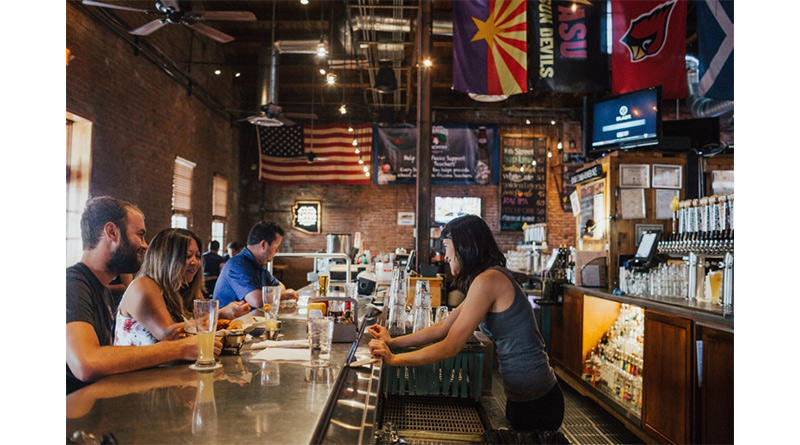Northern Cities Shed Weekend Party Image As “Seven Day Socialising’ Kicks In.

An analysis of leading bars and restaurants in some of the UK’s major cities has shown that Monday-Thursday ‘midweek’ spend in Leeds, York and Manchester has increased by an average of over 17% over the last four years, far outstripping the 7% of London, as Northern hospitality audiences become more balanced and diverse.
Northern Restaurant & Bar (NRB), the North’s hospitality trade exhibition, has analysed data showing the weekly leisure patterns of major Northern cities are rebalancing, with an increasing variety of audiences driving ‘mid-week’ sales, establishing a seven day trading pattern which is closer to that of London’s. The data was provided by CGA, the industry-leading food and drink data insights company.
Yorkshire performed well, with Leeds heading the list with a 19.6% net increase in ‘mid-week’ pub, restaurant and bar spend between over the last four years, and York second on 17.9%, Manchester was third on 13.5% growth, and close behind was Edinburgh on 13.4% and Birmingham on 13.2%, whereas London trailed in eleventh out of the thirteen cities included in the study on 7.0%, albeit it’s mid-week dining scene is already well established.
% Growth in Mon-Thurs Wet Sales at Selected City Centre Licensed Sites, 2015-2019
Leeds19.6%
York17.9%
Manchester13.5%
Edinburgh13.4%
Birmingham13.2%
Hull12.2%
Bristol11.1%
Cardiff10.1%
Glasgow9.6%
Nottingham9.3%
Sheffield8.7%
Liverpool7.7%
London7.0%
Newcastle5.7%(All data courtesy of CGA)
Thom Hetherington, CEO of NRB, said the findings reflected a broadening of audiences in Northern cities, and were a positive sign for the sector. “Restaurants and bars in cities like Manchester and Leeds traditionally did the vast majority of their business on the weekend, as drinkers and diners flooded in from regional towns and suburbs, whereas weekdays could be very quiet. This move towards ‘seven day’ socialising is welcome as it makes it much easier for restaurants and bars to manage stock and staff and evens out cashflow.”
Although seven day socialising is seen as a traditionally ‘London’ phenomenon, Hetherington insists it’s not about copying the capital. “It’s not about London per se, but seven day socialising is clearly a good aspiration, and is an indicator of the commercial strength, balance and resilience of a city. It implies it has more than just a weekend party scene, with a strong commercial sector, city centre residents, and business and leisure tourism for a variety of attractions and events all driving spend and socialising throughout the week.”
The data for all of the cities ranked is based on EPOS data from CGA’s consistent ‘Trading Index’ cohort of thousands of leading outlets, meaning the data represents true like-for-like sales, and is not skewed by the volume of new launches and openings. Hetherington said, “If anything the data hints at an even stronger underlying shift towards ‘seven day socialising’ in provincial cities, as existing venues have seen this clear Monday to Thursday uplift despite the deluge of new restaurants and bars opening in the meantime.”
